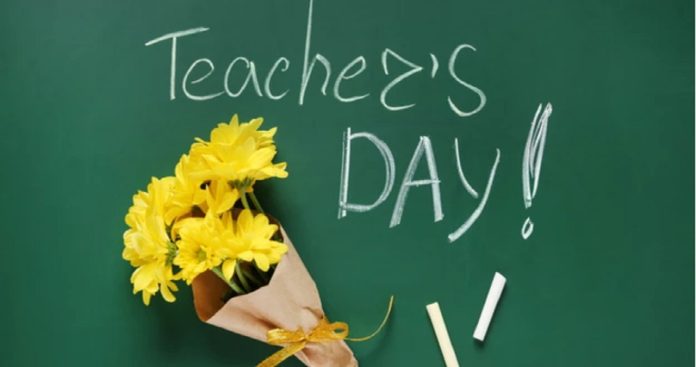Dr Biju Dharmapalan
As we move further into the 21st century, the role of teachers is poised to undergo significant transformation. The traditional image of a teacher standing at the front of a classroom, writing on a blackboard or green board, imparting knowledge to a room full of passive students is rapidly becoming obsolete. Historically, teachers were commonly seen as the principal sources of knowledge, primarily responsible for imparting information to pupils. There was a time when the knowledge was transmitted only through oral mode from the mouths of teachers, with no books or inscriptions available. From there today, we can record whatever a teacher teaches in the classroom and replay it whenever needed; whether the teacher is alive or not is an issue. Digital platforms have made the role of teachers easy and challenging. From information providers, the role of a teacher has shifted towards that of a facilitator. In a sense, today’s students are more knowledgeable than a teachers trained one or two decades earlier, as the information flow that happens to them through digital platforms is enormous. A teacher should keep up with the latest knowledge to meet the demands of present-day students and must make students critically evaluate, integrate, and utilise that knowledge intelligently.
The current image of an average teacher is one who uses a whiteboard and smart board, speaks less and interacts through multi-media platforms and public address systems. This makes students more attentive and gives the teacher a healthy vocal chord, which otherwise gets strained by voice overuse. In many cases, the interaction between teachers and students is minimised, which has positive and negative effects. The positive is that the usual partiality shown by teachers shall be minimised; the negative side is that less human interaction will elude future humans from being a social animal. Teachers should emphasise the social-emotional learning (SEL) approach and students’ digital well-being by periodically providing necessary digital detoxification programmes.
Along with AI, mixed learning environments integrating online and conventional face-to-face training will also grow in popularity. In order to successfully implement these hybrid models, educators will need to design lessons that bring together online and in-person learning. Among the new abilities needed for this role are data analytics for tracking student performance, the capacity to create engaging online classes, and the management of virtual classrooms. A competent teacher for the next century should be able to maintain decorum in the hybrid learning mode. We should train our teachers to tackle the digital world’s intricacies to help make good students for the future. For this, even the teacher’s training programme syllabus needs to be revised.
Today, a teacher can handle multiple courses simultaneously using state-of-the-art intelligent boards. Sometimes, they may have to handle students from different regions. In the next century, teachers will be responsible for helping students navigate the complexities of a globalised society where diverse perspectives, cultures, and values intersect. Teachers may have to shift their focus from a regional to a global perspective. In such a scenario, the teaching and class management style differs entirely from traditional classroom management.
Educational technology (EdTech) and artificial intelligence (AI) are vital to this change. Through the analysis of student data, AI can pinpoint areas in which students may benefit from extra assistance, allowing for the provision of tailored learning experiences. It can also automate administrative work, allowing teachers to spend more time interacting with their students. This shift responds to technological advancements and reflects changing societal needs and educational paradigms.
In an era of ongoing technological transformation, concerns such as data privacy, digital citizenship, and the ethical application of AI will gain growing significance. Educators must actively involve students in conversations regarding these subjects, facilitating their comprehension of the consequences of their activities in a digital realm and promoting their conscientious and morally upright behaviour.
As digital platforms and AI intrude into our education system, the traditional view of an educational institution may change. The huge physical infrastructure specified by the accrediting or affiliating agencies will become unnecessary for future educational institutions. The campuses may turn to rejuvenation or innovation centres for students to make social connections. In the future, a few institutions may advertise, “We train students through human teachers”. Even if society or culture changes, every human generation needs good teachers or gurus to guide them to walk properly in that society.
(The author is a Dean at Garden City University and an adjunct faculty member at NIAS, Bangalore.)
Trending Now
E-Paper


